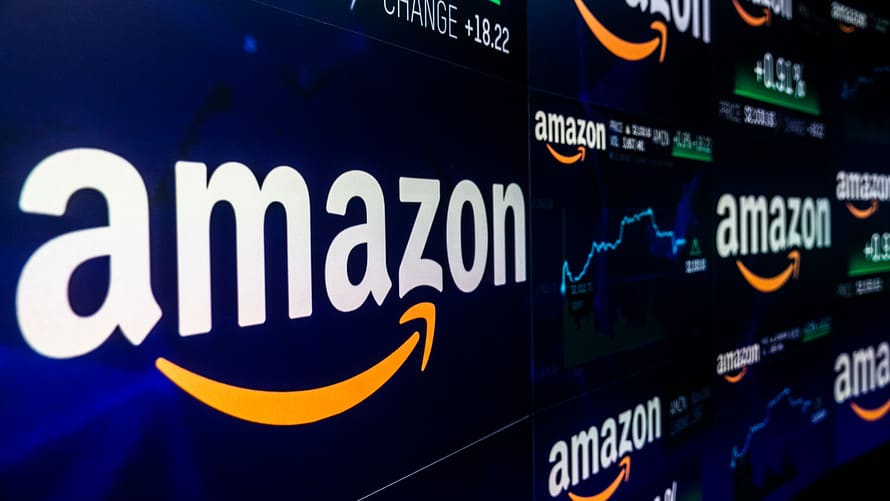Today concludes Amazon’s re:Invent 2019 conference in Las Vegas, where the Seattle company’s Amazon Web Services (AWS) division unveiled enhancements heading down its public cloud pipeline. Just Tuesday, Amazon announced the general availability of AWS Outposts, a fully managed service that extends AWS’ infrastructure and services to customer datacenters, co-location spaces, and on-premises facilities. And it debuted in preview Amazon Detective, which helps to analyze, investigate, and identify the root cause of potential security issues and suspicious activities. That’s not to mention AI-powered fraud detection and code review products and an expanded machine learning experimentation and development studio, as well as a dedicated instance for AI inferencing workloads.
But perhaps the most intriguing launch this week was that of Amazon Transcribe Medical, a service that’s designed to transcribe medical speech for clinical staff in primary care settings. It’s scalable across “thousands” of health care facilities to provide secure note-taking for clinical staff, with an API that integrates with voice-enabled apps and works with most microphone-equipped devices. It supports both medical dictation and conversational transcription, with conveniences like automatic and “intelligent” punctuation. And it’s covered under AWS’ HIPAA eligibility and business associate addendum (BAA), meaning any customer that enters into a BAA can use Transcribe Medical to process and store personal health information (PHI).
It’s worth noting that Amazon isn’t the only tech giant offering speech recognition products targeting health care. Microsoft this year said it would team up with Nuance to host the latter’s AI software that understands patient-clinician conversations, which integrates with medical records. Rival Philips has long offered tailor-made automatic transcription solutions for health care professionals in public hospitals and small practices. And Google, not to be outdone, is collaborating with Stanford on a “digital scribe” pilot to use voice assistants during patient checkups.
But Transcribe Medical is merely the newest in a string of products signaling Amazon’s desire to enter the AI in health care market, which is anticipated to reach $19.25 billion by 2026.
The bulk of Amazon’s recent efforts have piggybacked on Alexa, its voice assistant platform that’s embedded in over 100 million devices sold as of January 2019. Last week, in partnership with Giant Eagle Pharmacy, Amazon debuted a voice medication management service that allows customers to set up reminders and request refills using their prescription information. April marked the expansion of the Alexa Skills Kit (the collection of self-service APIs and tools that make it easier to build apps for Alexa) to Covered Entities and their Business Associates (subject to HIPAA), enabling the publication of voice apps that transmit and receive protected health information. And Amazon partnered with Cedars-Sinai in Los Angeles to deploy an Alexa-powered platform, Aiva, that lets patients control connected devices like TVs and request nurse or clinician assistance.
That’s only the beginning of the groundwork Amazon has laid to date. Amazon last year made three AWS offerings HIPAA eligible — Transcribe, Translate, and Comprehend — following on the heels of rival Google Cloud. It also acquired PillPack for just under $1 billion, an online pharmacy that lets users buy medications in prepackaged doses, and it more recently snatched up Health Navigator, a startup that develops APIs for online health services. Notably, prior to the purchase, Health Navigator invested heavily in developing natural language processing technologies to document health complaints and care recommendations, which it integrated with its customers’ online health services, including telemedical apps and medical call centers.
Arguably Amazon’s most ambitious step was the launch of Amazon Care, a pilot health care service available to its employees in and around the Seattle area. The offering — which emerged from a collaboration between J.P. Morgan and Berkshire Hathaway to explore how to reduce expenses for their combined 1.2 million employees — currently includes both virtual and in-person care, chat and remote video, and follow-up visits and prescription drug delivery to homes and offices. It’s been speculated that eventually, Amazon Care might tap data from trackers like Amazon’s Echo Buds (which reportedly spot built-in pedometers) to inform wellness recommendations and spotlight trends.
Taken together, the developments suggest Amazon views AI in health care as a frontier worth pursuing — and perhaps its next major revenue driver. It’ll likely be years before the company fully realizes its vision for the market, to be fair. But it’s making inroads in a way that even Google — which is deeply involved with health care research through Google Health and its sister companies DeepMind and Verily — hasn’t yet.

